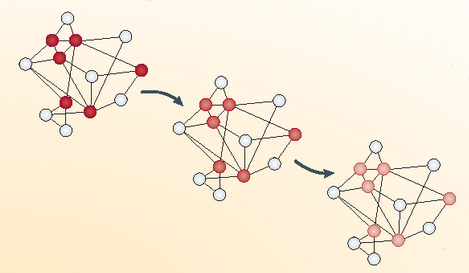Tuesday, 22 October 2019
Why forgetting can save your life

When we think about human memory, it tends to be with the implicit assumption that more is always better. But more and more neurobiologists are now asserting the opposite: that forgetting makes us more efficient! This raises two important questions: 1) forgetting what? and 2) more efficient in doing what? Science blogger Tom Siegfried attempts to provide the answers in an article published in January 2019, entitled “Why forgetting may make your mind more efficient.”
So back to question 1, forgetting what, exactly? Well, the basic idea is that not all details are essential. Suppose, Siegfried writes, that at some time you got bitten by a dog in a park. If your memory retained every detail about the dog (what size, what colour, how long its fur was, how big its paws were, etc.) and about the place in the park (on a gravel trail, near a bench under a tree), you might fail to generalize to other dogs and other places and to thereby develop a fear that might keep you from getting bitten again. I was bitten once by a dog when I was in kindergarten, and I know all too well that this generalization through the forgetting of superfluous details has let me spontaneously exercise a certain caution around dogs for all the decades since. If you think about it for a second, such caution is highly adaptive. But if you aren’t convinced, instead of imagining a 5-year-old child who gets bitten by a dog, imagine a gazelle that gets bitten while escaping from a lion and that for the rest of its life avoids any waterholes where there’s the slightest sign of a big cat. Such behaviour can make the difference between life and death for that gazelle and for all of its descendants that inherit these mechanisms of forgetting and generalization. (If instead, that first gazelle retained such vivid memories of the lion attack that it never made that generalization, it might well get eaten at some waterhole that didn’t match the one in its memory in every detail.)
This brings us to the second question: more efficient in doing what? Quite simply, in predicting the best behaviour to adopt in a given situation. Many years ago, French neurobiologist Alain Berthoz wrote: “Our memories of the past are not made to remember the past; they are made to predict the future. Memory is a tool for predicting.” Which leads us to a subject that we talked about two weeks ago : the broad new trend in neuroscience to regard the brain first and foremost as a machine for making predictions constantly. Or as neuroscientist Maria Wimber puts it in remarks quoted in Siegfried’s article, the problem that arises when we remember too many details is “overfitting”—the opposite of a good model that is general enough to accommodate numerous similar but not identical situations.
Thus, gradually, various pieces of the puzzle are starting to come together into a picture of the brain that is very different from the crude computational models of yesteryear and instead is grounded in an evolutionary perspective that emphasizes the importance of action. Forgetting the details so as to generalize and hence take action more efficiently enables us, in the medium and long terms (to make a distinction that is dear to Friston and his followers) to keep our organisms within the physiological limits of viability—in other words, not to die prematurely!
Memory and the Brain | Comments Closed







